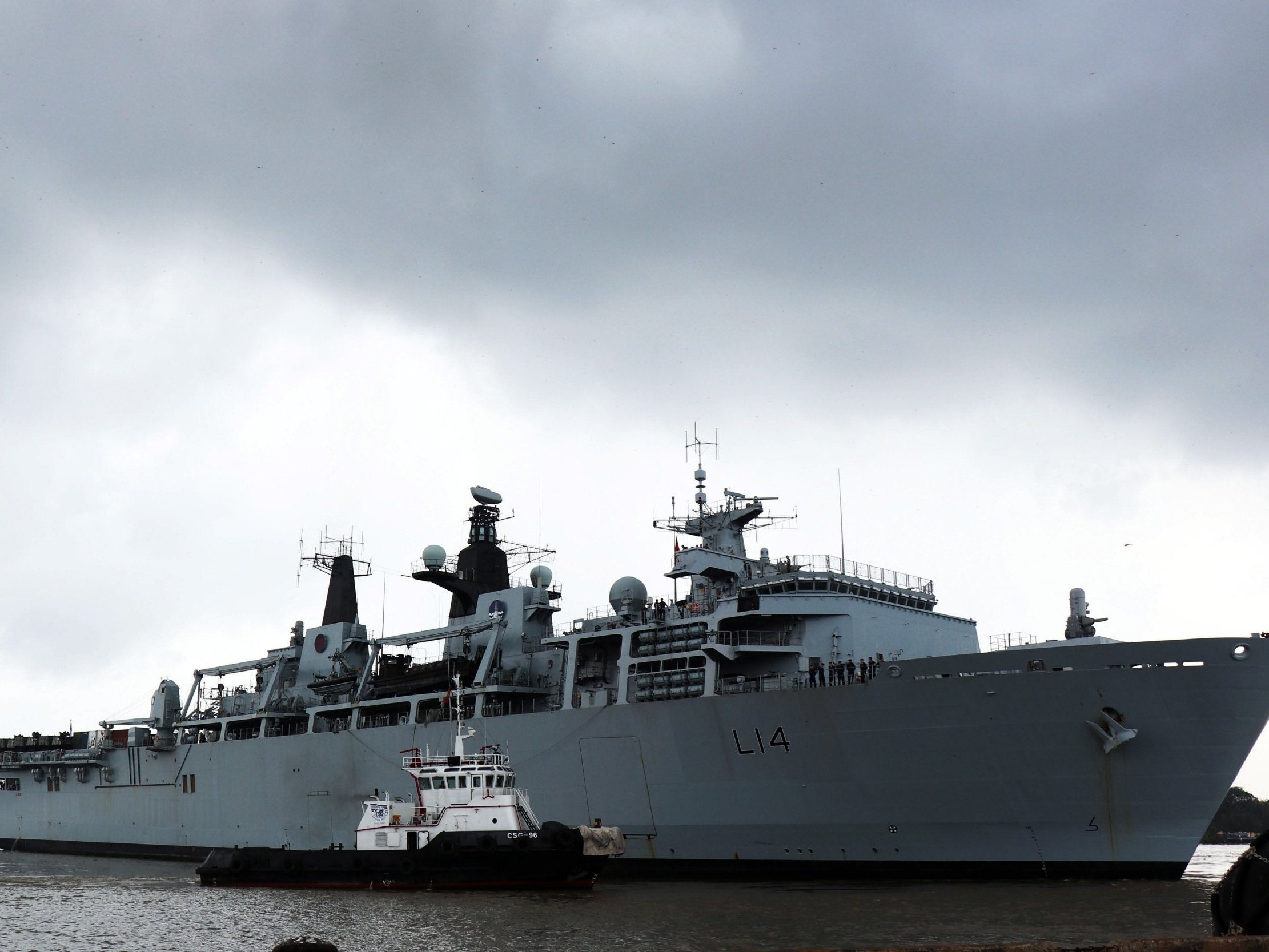Royal Navy 'challenges' China by sailing close to disputed islands
Beijing accuses UK of engaging in 'provocation' and dispatched frigate and two helicopters to confront vessel

Your support helps us to tell the story
From reproductive rights to climate change to Big Tech, The Independent is on the ground when the story is developing. Whether it's investigating the financials of Elon Musk's pro-Trump PAC or producing our latest documentary, 'The A Word', which shines a light on the American women fighting for reproductive rights, we know how important it is to parse out the facts from the messaging.
At such a critical moment in US history, we need reporters on the ground. Your donation allows us to keep sending journalists to speak to both sides of the story.
The Independent is trusted by Americans across the entire political spectrum. And unlike many other quality news outlets, we choose not to lock Americans out of our reporting and analysis with paywalls. We believe quality journalism should be available to everyone, paid for by those who can afford it.
Your support makes all the difference.A British Royal Navy warship challenged China’s disputed territorial claims by sailing close to islands in the South China Sea, it has been revealed.
Beijing reacted with anger, accusing Britain of engaging in “provocation” and saying it had lodged a strong complaint.
The HMS Albion, a 22,000-ton amphibious warship carrying a contingent of Royal Marines, exercised its “freedom of navigation” rights as it passed near the Paracel Islands, Reuters reported, citing two sources.
China dispatched a frigate and two helicopters to challenge the vessel, but both sides remained calm during the encounter last month, one of the sources said.
The other said the Albion did not enter the territorial seas around any features in the hotly disputed region, but demonstrated that Britain does not recognise excessive maritime claims around the Paracel Islands.
Twelve nautical miles are considered an internationally recognised territorial limit.
Tensions remain high in the South China Sea as China develops military installations on a series of reefs, atols and artificial islands despite a ruling by the Permanent Court of Arbitration in The Hague, which said there was no legal basis for Beijing’s martime claims that extend 1,000 miles beyond its shores.
The Paracels are occupied entirely by China, but also claimed by Vietnam and Taiwan.
China’s foreign ministry said the ship had entered Chinese territorial waters around the islands without permission on 31 August, and the Chinese navy had warned it to leave.
“The relevant actions by the British ship violated Chinese law and relevant international law, and infringed on China’s sovereignty. China strongly opposes this and has lodged stern representations with the British side to express strong dissatisfaction,” the ministry said in a fax to Reuters.
“China strongly urges the British side to immediately stop such provocative actions, to avoid harming the broader picture of bilateral relations and regional peace and stability.
“China will continue to take all necessary measures to defend its sovereignty and security.”
While the US Navy has conducted such Freedom of Navigation Operations (FONOPs) in the same area in the past, the latest challenge to China’s growing control of the seaway, through which around $3trn (£2.3trn) of shipborne trade passes each year, comes after the US said it would like to see more international participation in such operations.
A spokesman for the Royal Navy said: “HMS Albion exercised her rights for freedom of navigation in full compliance with international law and norms.”
Responding to a statement from China's defence ministry, Johnny Mercer, the Conservative MP for Plymouth Moor View, said on Twitter: "It was international waters. You can’t redefine international waters as your own and then get upset when people use them.
"Like claiming to own the road outside my house and banning cars. Ridiculous."
The British Navy has previously sailed close to the disputed Spratly Islands, which lie further south in the South China Sea.
Earlier this year, China reacted with fury after two US warships sailed close to the Paracels, with Beijing accusing America of committing a serious infringement of its sovereignty.
The USS Higgins, a guided-missile destroyer, and the USS Antietam, a guided-missile cruiser, came within 12 miles of the islands.
Speaking in Jakarta in August, the Foreign Office minister for Asia and the Pacific, Mark Field, said Britain was committed to an enduring security presence in Asia. He urged countries to respect navigational freedom and international law in the South China Sea.
Join our commenting forum
Join thought-provoking conversations, follow other Independent readers and see their replies
Comments